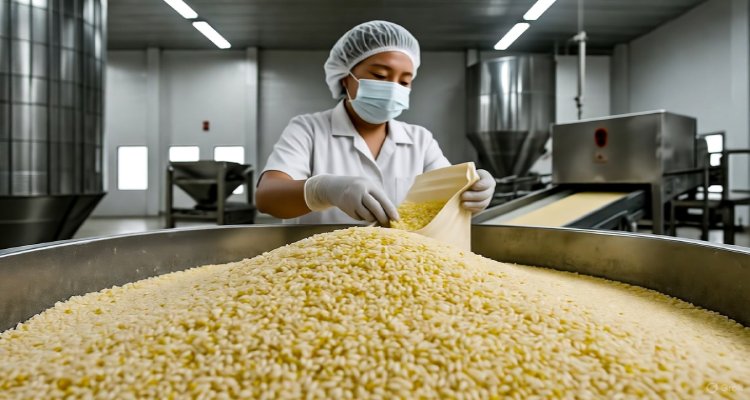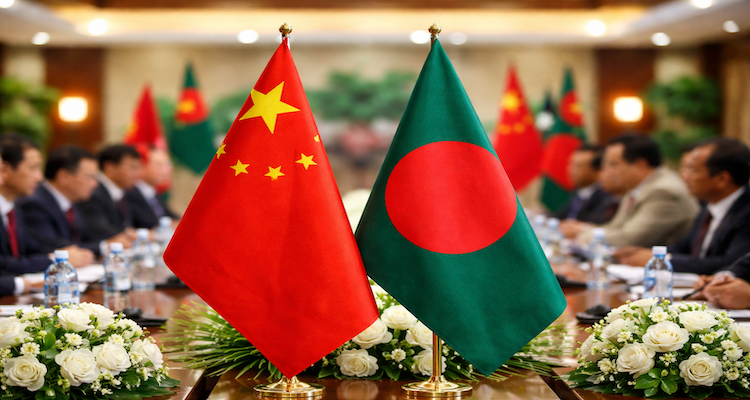APEDA Facilitates Export of Fortified Rice Kernel from Chhattisgarh to Costa Rica

India exports its first batch of fortified rice kernel from Chhattisgarh to Costa Rica through APEDA, marking a milestone in global nutrition and food security efforts.
A new milestone in India’s food export journey
India has taken a significant stride in global nutrition and agricultural trade with the Agricultural and Processed Food Products Export Development Authority (APEDA) facilitating the first export consignment of fortified rice kernel (FRK) from Chhattisgarh to Costa Rica. The 12-metric-tonne dispatch marks an important breakthrough in India’s commitment to food fortification, innovation, and global health outreach.
Context and background
APEDA, operating under the Ministry of Commerce and Industry, has long been at the forefront of promoting India’s agricultural exports. Established in 1986, the authority plays a crucial role in facilitating the export of food products ranging from fruits and vegetables to cereals, dairy, and meat products.
Fortified rice kernel production represents a sophisticated blend of agriculture, nutrition, and technology. FRKs are created by blending rice flour with micronutrients such as iron, folic acid, and vitamin B12, which are then extruded and shaped to resemble regular rice grains. When mixed in a specific proportion with standard rice, they ensure enhanced nutrition levels without altering culinary appeal.
This innovation aligns with India’s domestic initiatives, particularly the ‘Kuposhan Mukt Bharat’ (Malnutrition-Free India) mission under the Poshan Abhiyan. The Food Corporation of India (FCI) has already integrated fortified rice into its distribution system nationwide. Through this export, India demonstrates its ability to share nutritional technology solutions with the world while strengthening trade ties with Latin America.
Main developments and significance
The export of fortified rice kernels from Chhattisgarh is not just a commercial exchange but a testament to regional capacity building and inclusive growth. Chhattisgarh, known for its strong agricultural base, has become a vital player in the production and processing of fortified foods.
According to trade officials, the 12-metric-tonne consignment to Costa Rica symbolizes a step toward expanding India’s presence in high-value global food markets. For Costa Rica—a country recognized for its strong focus on health and sustainability—the import highlights an alignment with its own public nutrition objectives.
This shipment also showcases India’s technological capability in food fortification, developed through years of research and collaboration between public agencies and private manufacturers.
Expert insights and reactions
Food export analysts and nutrition experts have welcomed the development as a model of synergy between economic opportunity and social impact.
Dr. Anjali Bhatia, a food technology researcher based in New Delhi, noted that fortified rice exports represent “a transformation of India’s nutritional strategies into tangible global trade outcomes.”
Meanwhile, trade policy consultant Rajeev Soni emphasized that APEDA’s efforts “enhance the credibility of Indian agro-industries and position the country as a leader in value-added food exports.”
Public reactions, particularly from India’s eastern states, reflect a sense of pride in Chhattisgarh’s contribution. Local agripreneurs see the export as an inspiration to expand production capacities, adopt better quality controls, and leverage global demand for fortified and functional foods.
Impact and broader implications
The implications of this development are multifaceted. For India, it strengthens global perception as an innovator in food fortification and an ally in the fight against malnutrition. It also encourages farmers and processing units in rice-rich regions to adopt fortified rice kernel technology, generating new employment, trade, and skill opportunities.
Globally, Costa Rica’s acceptance of fortified rice opens avenues for Indian exporters in Latin and Central American markets, known for prioritizing sustainable and health-centered imports. This trade could potentially diversify India’s export portfolio beyond traditional markets in Africa and the Middle East.
Moreover, this initiative aligns with the United Nations Sustainable Development Goal (SDG) 2 – Zero Hunger – by addressing micronutrient deficiencies on a cross-border scale. As food fortification becomes a global priority, India’s contribution through export-oriented initiatives like this solidifies its role as a reliable partner in global nutrition security.
Understanding APEDA’s role
The Agricultural and Processed Food Products Export Development Authority was established under an Act of Parliament in 1986, replacing the Processed Food Export Promotion Council (PFEPC). Headquartered in New Delhi with 16 regional offices nationwide, APEDA is tasked with promoting and developing exports of agricultural and processed food products.
Its purview covers a broad spectrum of products, including fruits, vegetables, meat, poultry, dairy, confectionery, cocoa, beverages, cereals, groundnuts, pickles, floriculture products, herbal plants, and cashew nuts. Beyond export facilitation, APEDA monitors sugar imports and also serves as the Secretariat for the National Accreditation Board under the National Programme for Organic Production (NPOP), ensuring international quality compliance.
Through these roles, APEDA not only promotes trade but also represents India’s agricultural innovation and sustainability ethos to the global marketplace.
Looking forward
The export of fortified rice kernel from Chhattisgarh to Costa Rica reflects more than a trade success—it signals India’s emergence as a major contributor to global food innovation and nutrition-based diplomacy.
As fortified rice becomes an essential tool in addressing hidden hunger worldwide, India’s technological expertise and production capabilities could pave the way for new partnerships, policy exchanges, and research collaborations focused on achieving shared nutrition goals.
APEDA’s initiative is expected to stimulate further exports in this sector, turning fortified food technology into an avenue for sustainable trade growth and global goodwill.
Disclaimer: This article is intended for informational and educational purposes. It does not constitute trade, policy, or nutritional advice. Readers should verify details through official government releases and APEDA publications.









